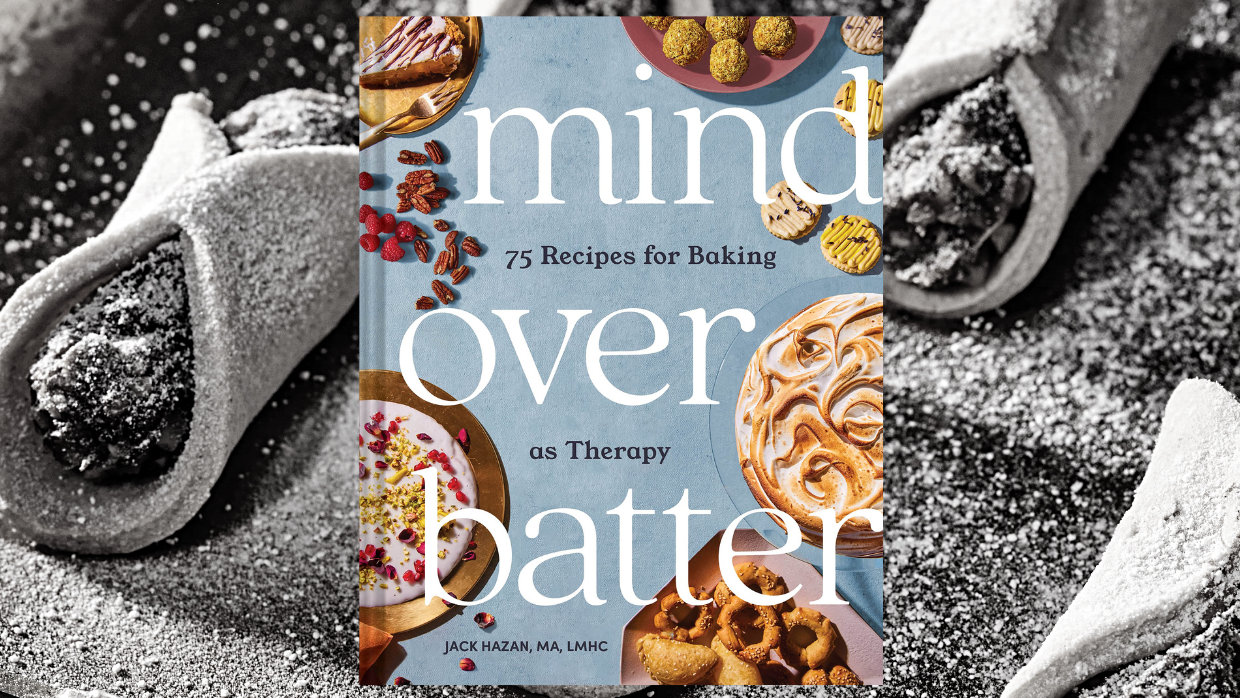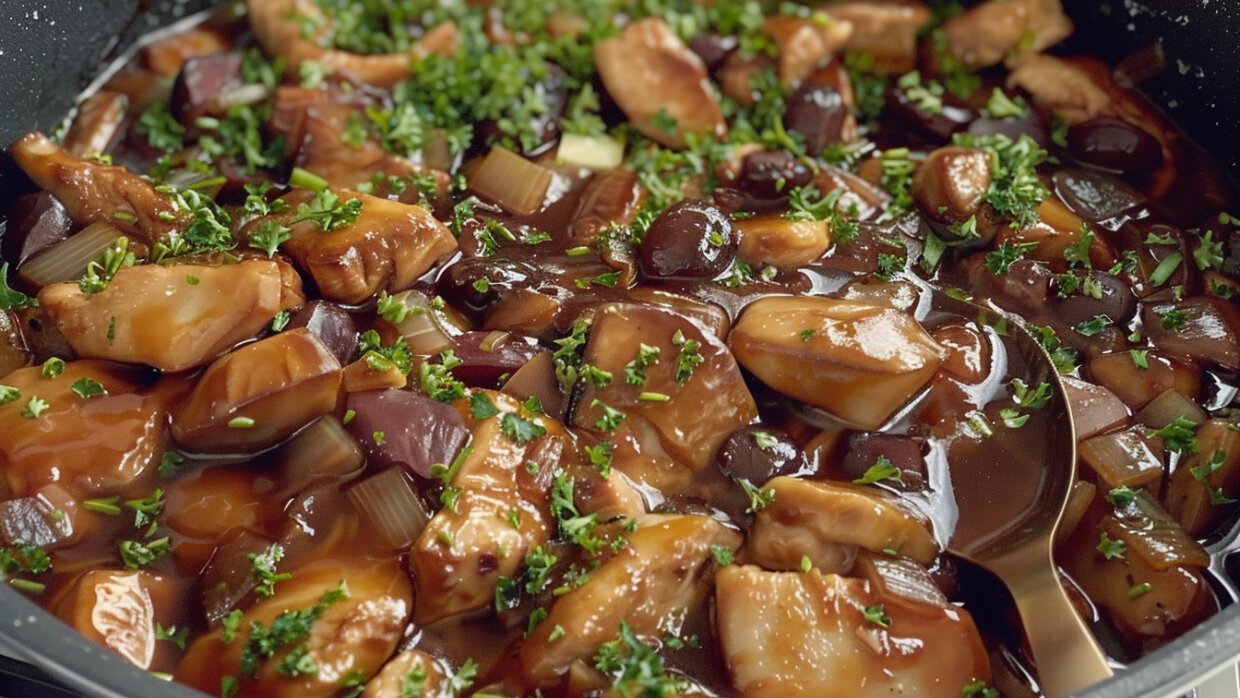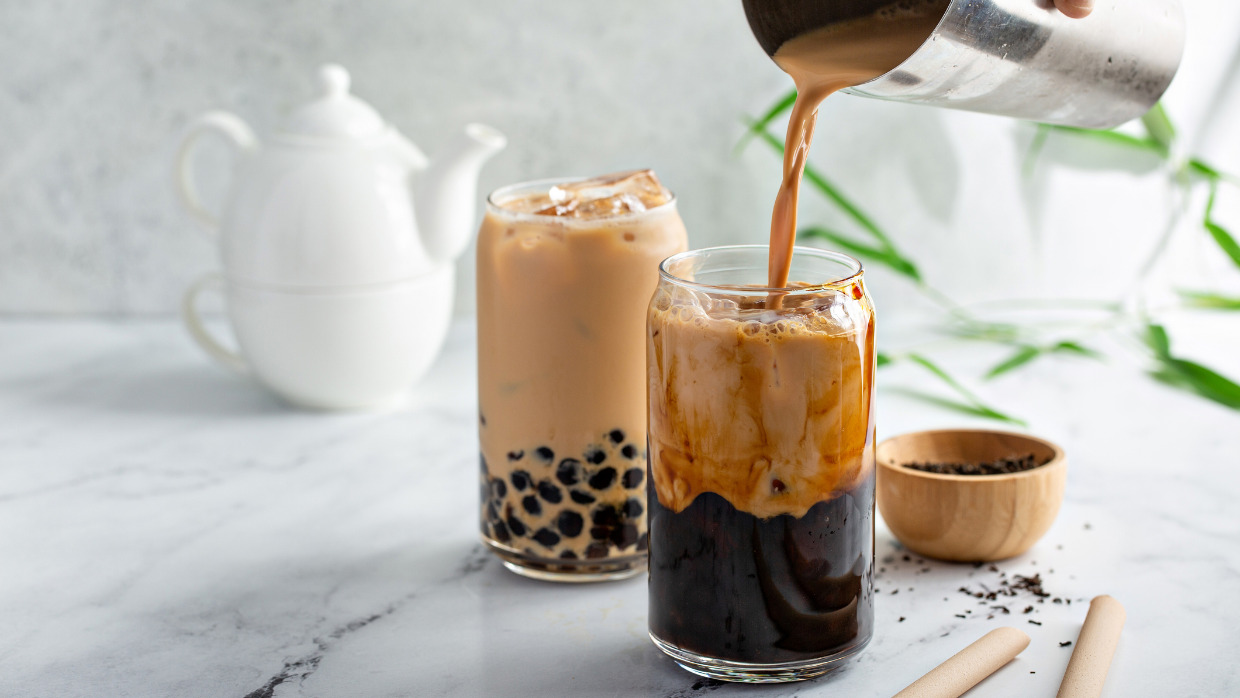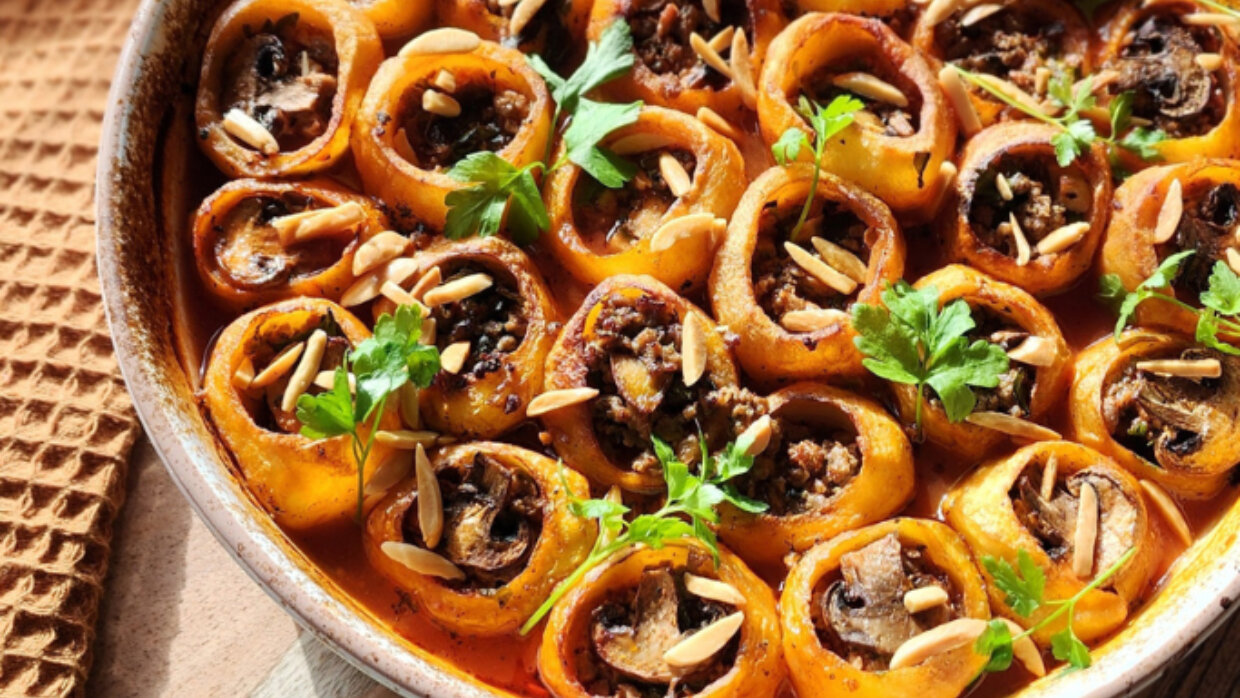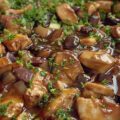Baking doesn’t have to be stressful—in fact, in the brand-new cookbook Mind Over Batter, cookbook author Jack Hazan lets us know that baking can actually be used to combat stress. Hazan incorporates his Syrian Jewish heritage into his practices as a baker, therapist, and now cookbook writer. His baking therapy would not be the same without his Syrian Jewish background entrenched in the process. With Hazan’s strong voice and personality shining through the pages, Mind Over Batter serves not just as a collection of recipes but also as a baking companion. We spoke with Hazan and his co-author Michael Harari to get the inside scoop on their debut cookbook.
Q: How long did it take you to write this cookbook from start to finish?
Michael: Three years from the time we got the publisher. It took a full year just to get the manuscript together, but this book is part baking, part mental health and therapy. We didn’t want to come out with a self-help book that brought recipes in, we wanted to lead with recipes and showcase the therapeutic techniques used in baking. Thinking through all of that took a lot of the effort.
Q: What were your individual roles as co-authors?
View this post on Instagram
Michael: Jack and I have been friends for several years, we come from the same Syrian Jewish community, and know each other really well. I come from an advertising and creative writing background, my job was to interview Jack on each of the different chapters that we were putting into the book.
View this post on Instagram
Jack: As a licensed mental health counselor, and the owner of a baked goods company, I provided all the therapeutic, psychological perspective on the book, and I was the baker.
Q: How would you say that your Syrian-Jewish identities impacted the way that you wrote this cookbook?
Jack: The Syrian Jewish community is a food centered community. For holidays, and Shabbat it’s not just one or two dishes, it's end to end, food is ingrained in us, that’s what brings us together. Our unique flavors like rosewater, orange blossom water, dates, and pistachios make eating a journey, an experience. What goes into making the food is an experience in itself too. I wanted to share the recipes that I was surrounded by, the smells that transport me back to my culture.
Michael: There are certain flavors we both grew up having that unless people are going to a Middle Eastern restaurant they aren’t really getting to explore and try. There’s also a trend of people becoming less and less Jewish. This cookbook is a way for us to keep the tradition of our culture alive. The fact that we can have those dishes that have been passed down through the generations is a really nice way for us to honor where we come from. We have this close-knit community and if we didn’t, the foundation of this book would have felt very different.
Q: You mention in the cookbook how sometimes you bake with your patients. Describe for us what a workspace that serves both as a place for therapy and a place for baking looks like.
Jack: Before I began doing Zoom sessions, I was lucky to have functional kitchens in both of my spaces, with an oven. I would say ‘Let’s do something together and have a conversation,’ so then it wasn’t a therapist and a patient, but just two people connecting, doing an activity on the same team. We went into the kitchen and made something super simple, and it started to flow naturally. This process helps some patients get out of their own head and open up. It’s a way for people to express themselves without feeling so vulnerable doing so.
Q: What advice do you have for someone trying baking as therapy for the first time?
Jack: Baking does not need to be complicated. If you’re present to whatever you are baking, I promise you that you can find a feeling of satisfaction by completing small tasks. Ask yourself what do I feel now in my body, what am I smelling, what am I noticing. Let baking be a thing in your life that’s not complicated.
Michael: Don’t be afraid to throw yourself into it, perfection is overrated when it comes to baking. Don’t try to outdo yourself, just follow it step by step, it really is taking it one ingredient, one direction, one flavor at a time.
Q: We must know. What are your favorite recipes to make as baking therapy?
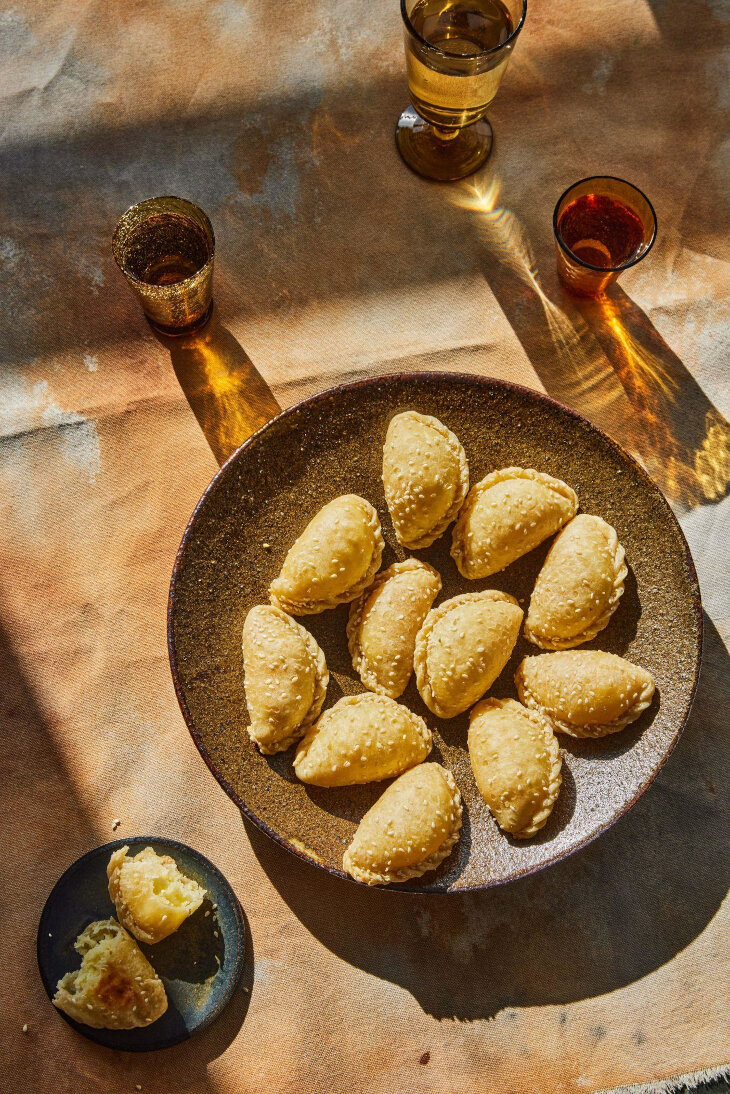
Jack: I like the babka more than the challah, and the crumb muffins, love that one, my mouth loves crumble, all year around. Knafeh, love baking it, always a crowd pleaser, love where I go with it with my senses, so aromatic.
Michael: I’ve made the Cookies and Cream Brownies with Oreos in the batter three or four times over the last two months. Anything with Oreos in it I’m all for.
Q: Do you see yourselves writing more cookbooks together in the future?
Jack: For sure together and for sure, yes, already thinking about book two.
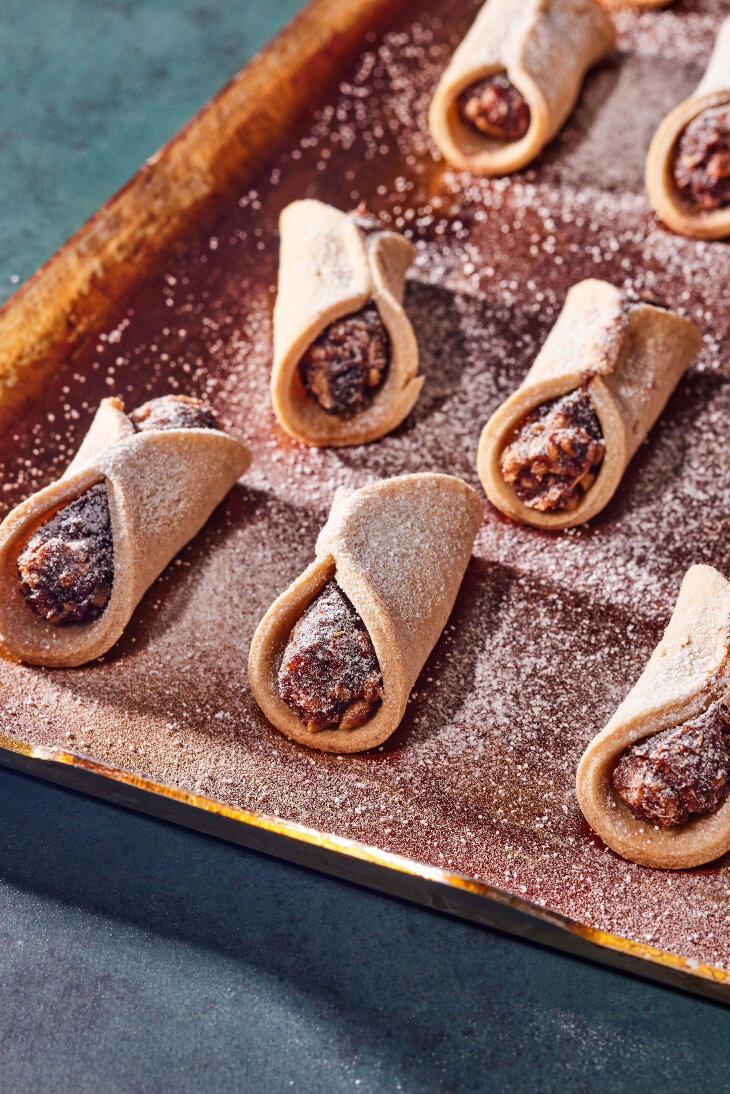
Michael: The central theme of baking as therapy would still be there in the second book, but with a different facet on why people might need some assistance. We could have done an entire book on relationship styles, loved ones, kids, giant family gatherings, meeting parents for the first time. We will use Mind Over Batter as our litmus test for what people would resonate with next time.
Get a sneak peek into Mind Over Batter and try out a few recipes from the book.
Sambusak, a cheesy, delectable staple of the Syrian community.
Let’s Go on a Date(-Stuffed) Cookies
Photos reprinted with permission from Mind Over Batter by Jack Hazan, © 2023. Published by Chronicle Books. Photographs © Lauren Volo.





